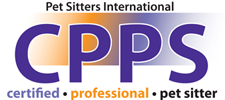
We all get worried about our pets (especially our dogs) when it comes to chocolate. We’ve heard the horror stories of pets accidentally eating chocolate baked goods and the scary realization that some mulch actually has chocolate in it! Given that even a small amount of chocolate (especially in smaller dogs) can cause serious health problems or even be life-threatening is scary. So, we do everything in our power to ensure that our pets don’t get chocolate.
There’s also a number of other human foods that we know to be detrimental to a pet’s health, so we stay away from those as well. As long as we know what our pets should avoid, everything is fine.
Yet, the scariest thing of all is when we are unaware of what our pets need to avoid because then we can’t make sure they’re safe. That’s exactly why we’re writing this post because we want to let you know about one “sugar-free” sweetener (that’s in a lot of foods!) that your pets MUST avoid to stay in good health. What is it? Xylitol.
What’s xylitol?
Don’t worry, it’s common to not have heard of xylitol. It’s one of the many natural sweeteners found in many, many human foods. It’s used often because of its anti-cavity properties as well as a natural substitute for sugar.
Is xylitol safe for humans?
Yes, it is. It’s not necessarily recommended for all, as most “sugar-free” sweeteners aren’t, but it is a good sugar substitute for those with diabetes.
What foods can xylitol be found in?
Xylitol can, unfortunately, be found in many, many foods and if you’re not careful to read the labels, you’re bound to buy something with it as an ingredient. It’s most commonly found in “sugar-free” gum, mints, toothpaste, and mouthwashes. It’s also used in “sugar-free” baked goods quite often. And the scariest one of all? It’s now even an ingredient in some peanut butter.
Peanut butter! A snack we feel good about giving to our dogs! It’s high in protein and they absolutely love it. If you’re one to use peanut butter to give to your dog with medication or even as a treat, you must make sure that you read the labels carefully to ensure you’re not accidentally giving your dog xylitol.
Why is xylitol harmful to pets?
Xylitol is toxic to pets, especially dogs. It poisons them, just as chocolate does. And unfortunately, it takes a lot less Xylitol than chocolate to poison and kill your dog. In fact, if a smaller dog, like a Yorkie, eats just 0.05g of Xylitol, it’s toxic. If a larger dog, like a lab, eats 0.1g to 0.3g of Xylitol, it’s toxic to them. Basically, it’s important that you ensure that your dog has ZERO xylitol at all.
Why isn’t this widely known?
Unfortunately, we can’t answer that. It might be because more and more research has been done recently to provide that xylitol can kill dogs. Or, it could be because more pets have died from xylitol in the last few years because it’s now a widely-used ingredient. Whatever it is, we’re doing everything we can to spread the word so you can keep your pet(s) safe.
How could your pet consume xylitol?
Pets, especially dogs, love to get themselves into trouble. They have excellent noses and are easily able to smell things in a plastic package from far away. Imagine buying a pack of gum, leaving it in your purse on your kitchen counter, and when you walk out of the room, your dog jumps right up on that counter to eat the gum. Not very unusual, right? Dogs will do the same things with mints, candies and baked goods (they don’t care if they’re sugar-free!) and if anything has xylitol in it, your dog’s life could be easily threatened.
What if your pet has eaten xylitol?
If you think there is a chance your pet has accidentally eaten xylitol or is acting strangely, take them to the vet immediately. Depending on whether your dog develops hypoglycemia or liver failure from xylitol, the treatment will be different. Do everything you can to get your pet to the vet immediately.
How can you help protect your pet from xylitol?
The first thing you can do is read ingredient labels before you make any purchases. If you see any of the following phrases, it is highly likely that xylitol can be found in the product:
- Sugar-free
- Reduced sugar
- All Natural – no sugar added
- Naturally sweetened
- No artificial sweeteners
- Aspartame free
- Low carb
- Low calorie
- Cavity-fighting
If you must purchase something with xylitol in it, train your pet to stay away from the products. Is it in your toothpaste? Don’t allow them in the bathroom. In baked goods? Put them in an upper cabinet that your pet could never reach. Don’t leave your purse out on the counter if it contains any sugar-free gum, mints or candies.
Xylitol is scary and shouldn’t be taken lightly. We ask that you do everything you can to help spread the word, so people don’t lose their precious pets. Remember to always check labels and stay aware of what you’re feeding your pet and what they’re getting themselves into. It could be a matter of life and death for them!




Leave a Reply